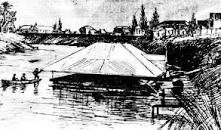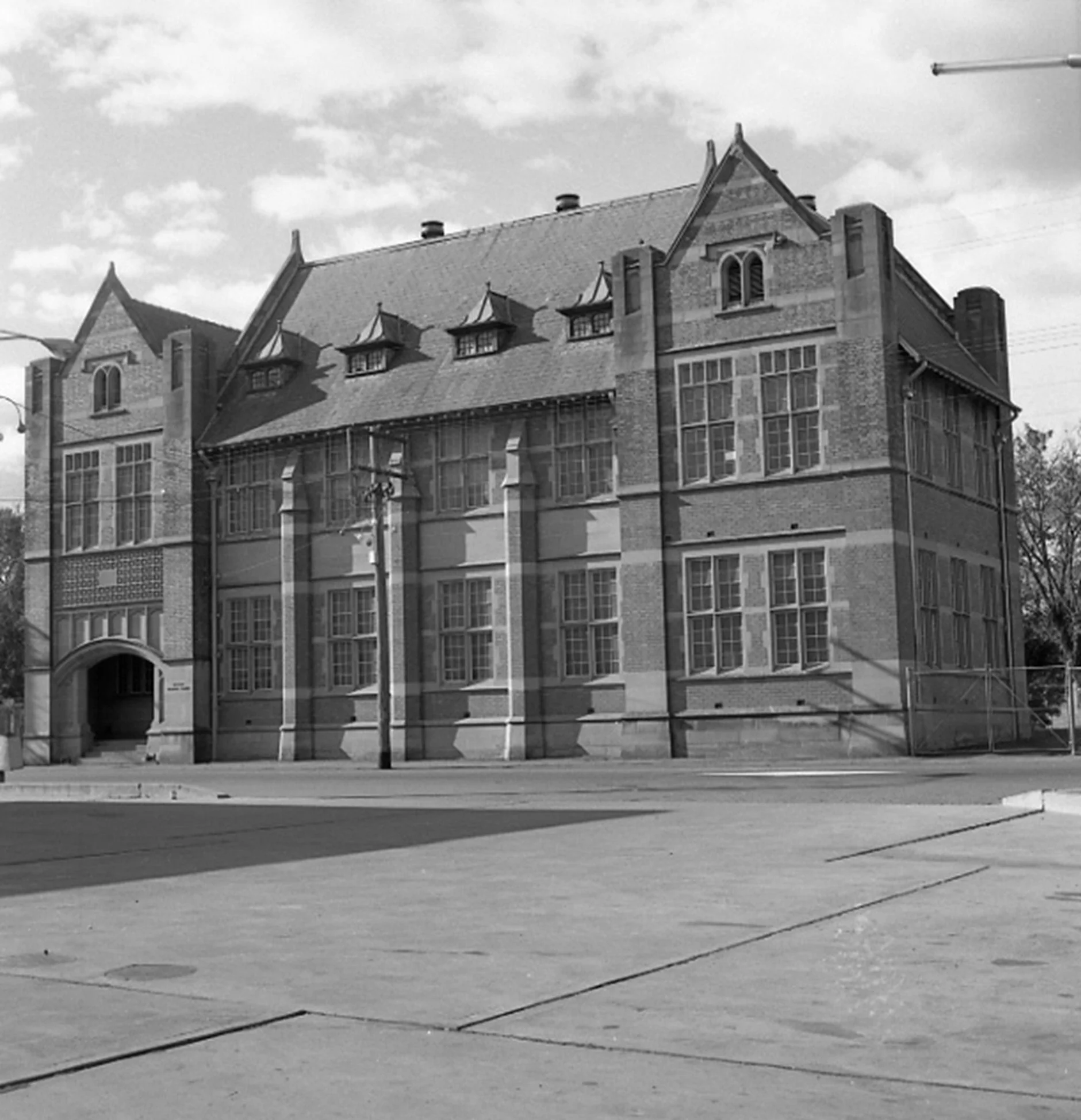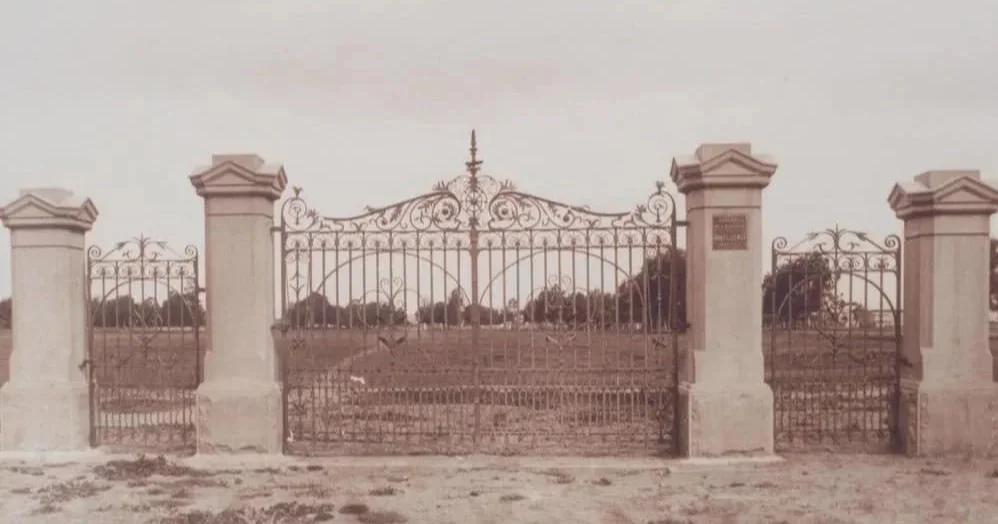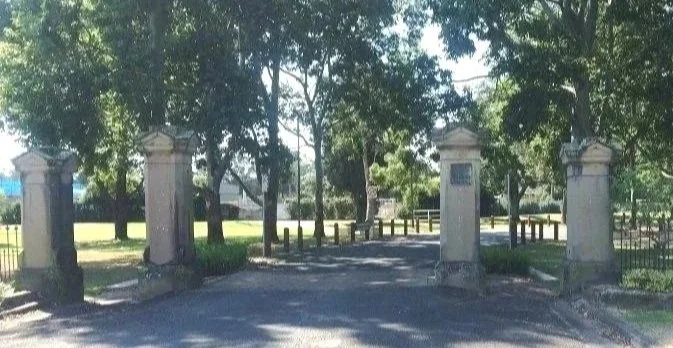John Gillies, mayor and MP
Portrait of John Gillies
John Gillies (1844-1911) arrived in New South Wales from Scotland on the General Hewett with his parents at the age of four. Before long the family had taken up residence in West Maitland, the town in which Gillies was to live for the rest of his life. He became perhaps the most accomplished of the 18 men who served as Mayor of West Maitland during the nineteenth century.
Activity in Maitland
Gillies began work at 13 as a compositor on the Maitland Mercury and was quickly recognised for the speed and accuracy of his work. In 1874 he became a part-owner of the newspaper and its business manager, and he was in charge when it became a daily twenty years later. He would have had a profound influence on the Mercury and its editorial stances for many years. His background was ‘comfortable middle class’ as was the case with many of the leaders of the local community. No doubt this made it relatively easy for Gillies and others like him to take on public roles: they had time for them. There was something of a sense of the ‘noblesse oblige’ (the responsibilities of the rulers) amongst the men of Maitland’s elite.
Maitland Mercury building
Beyond his employment, Gillies was involved in many local organisations. He was Secretary-Treasurer of the West Maitland Volunteer Water Brigade and President of both the Maitland Rowing Club and the Maitland Rugby Football Club. He was active in the Northumberland [Australian Rules] Football Club and the Maitland Gymnastics Club and was involved in the affairs of the Floating Baths Company which operated a public bathing facility in the river near the end of Odd St during the 1880s. He sat on the boards or management committees of the Maitland Hospital, the Maitland School of Arts, the Northern Jockey Club, the Hunter River Agricultural and Horticultural Association and the Maitland Lands Board. He was also a trustee of the Great Northern Permanent Building Society and the Maitland Branch of the Savings Bank of NSW.
In addition he served as a Justice of the Peace and a West Maitland Municipal Council alderman and, between 1888 and 1890, he was the Mayor of the Borough of West Maitland. Being involved in so many different organisations put his finger firmly on the pulse of the local community. Nobody else would have been better connected or better known locally in his time, or would have had a larger power base.
Gillies was a freemason and a teetotaller. He was also a member of the Order of the Sons of Temperance.
West Maitland floating baths as depicted in The Illustrated Sydney News, 8 August 1889.
Career as a Member of the Legislative Assembly
In 1891 Gillies was elected to the NSW Legislative Assembly. He was to win his seat in eight consecutive elections, mostly by wide margins, and he served until his sudden death from a heart attack in 1911. In his political life, he supported three different parties at different times, but he was, in reality, an independent focused on the welfare of his community. He was the ultimate ‘local‘ member, tirelessly promoting the advancement of Maitland. He eschewed traditional involvement in party politics, which ruled out any chance of his becoming a minister. Instead, he supported whichever party was prepared to invest in initiatives that he saw as beneficial to Maitland.
Gillies was instrumental in establishing important community buildings in the area, including the West Maitland Courthouse (1895) and the Maitland Technical College (1910). He also won government funding for substantial additions to the Maitland Hospital and Maitland Boys’ High School.
Maitland Technical College
Gillies obtained government support for ‘The Cut’ which involved the re-routing of the river’s channel away from High St and the built-up area of West Maitland, and for the raising and strengthening of the embankment (levee) along the riverbank behind High St. ‘Taming’ floods was perhaps his most abiding passion, along with the Water Brigade which existed for the purpose of rescuing people from floods and checking on and resupplying those who had been cut off by floodwaters. In his maiden speech to the Legislative Assembly Gillies had complained about the neglect that had been shown by the colonial government to Maitland, specifically in the context of its vulnerability to floods which were frequent and often severe in their consequences.
Two pages from A Souvenir to Mr John Gillies, MLA, printed by Thomas DImmock, 1904
A four-page bound booklet with a menu and programme for an event ‘in commemoration of his [Gillies’] great victory over the Hon J N Brunker’.
A full copy of the souvenir can be viewed at Collections Maitland.
(Maitland Libraries LIB2022.089)
Death and legacy
On his death Gillies was called ‘the best friend the [Water] brigade ever had’. His funeral cortege, more than a mile and a half long, was led by one of the Brigade’s rescue boats, the ‘Jack Gillies’, mounted on wheels and carrying his coffin. Brigade members wore their dress uniform.
In 1888 Gillies had laid the Town Hall’s cornerstone. Over the portico his name was for years mis-spelled as JONH until mysteriously, in relatively recent times, the mistake was rectified. There was some community disappointment about this, many people preferring the original to the corrected version. In 1968 East Greta was renamed Gillieston Heights in his honour, and in 2016 he was inducted into the City Council’s Hall of Fame ‘for contributions to business and public service’. The John Gillies Memorial Gates mark the Elgin St entrance to Maitland Park.
John Gillies was a popular public figure, as his record in parliamentary elections demonstrated. Probably, nobody else of his generation contributed more to Maitland. He was, perhaps, the ‘Mr Maitland’ of his times.
John Gillies Memorial Gates at Maitland Park
Left: 1920s (posted by Peter Smith to Facebook) Right: about 2016 (Monument Australia)
click on above images for larger views
References
Bond, Peter, ‘West Maitland Water Brigade: an Historical Study’, unpublished manuscript, 2016.
Collections Maitland, Maitland City Council (website).
Fredman, Lionel E, ‘John Gillies’, Bulletin of the Maitland and District Historical Society, 4 (7), 1980
Fredman, Lionel E., ‘John Gillies (1844-1911)’, Australian Dictionary of Biography, Vol 9, 1983.
Keys, Chas, ‘our past: John Gillies popular city mayor and public figure’, Maitland Mercury, 4 August 2023.








